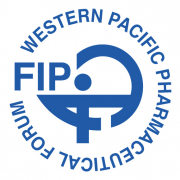More Pharmacists Needed for SG!
| Pharmacy Council to Grow Profession with Specialised Career Tracks, Scholarships
By Judith Tan Pharmacists now do not just dispense medicine, but are involved in areas like drug development, said Senior Parliamentary Secretary (Health) Hawazi Daipi, as the profession seeks to grow and attract more pharmacists. — ST FILE PHOTO WITH a ratio of one pharmacist to 3,000 people, Singapore is far off the developed world’s standard of one to 500. The shortage has driven the Singapore Pharmacy Council (SPC) to try to bump up its numbers. It will recruit more pharmacists by expanding its list of recognised foreign qualifications and allowing fresh graduates from overseas to carry out their pre-registration training, the pharmacist’s equivalent of medical housemanship, here. SPC’s target for a start: One to 2,650 over the next five years. In the last 10 years, pharmacists have progressed from dispensing medicine to being involved in drug development, formulating innovative drug delivery systems, writing safety regulations, and influencing the cost-effective and optimal use of medicine to achieve good patient outcomes, said Mr Hawazi Daipi, the Senior Parliamentary Secretary for both the Manpower and Health ministries, yesterday. He was the guest of honour at the pledge affirmation ceremony for pharmacists, held at the College of Medicine. The SPC projects that the country will need 200 pharmacists yearly over five years to add to the 1,700 here. Speaking to reporters at the event, SPC’s president Wu Tuck Seng said while it is easy to attract foreign-trained pharmacists to Singapore with better pay packages, the challenge is to keep them here. ‘We need to create a niche for pharmacists to grow as a profession. One way is to have two different tracks for them – one being professional and the other clinical and research,’ he said. The dual track proposal was approved for public hospitals by the Health Ministry in 2008, and is being implemented in stages, said Ms Ang Hui Gek, SPC’s registrar and chief pharmacist at the ministry. The ministry also announced last year that it was setting aside $7 million for scholarships for specialist training, which trained pharmacists can take up, as well as doctorate and master’s programmes over the next five years. There is a demand for pharmacists who specialise in cancer, heart disease, critical care, infectious disease, geriatrics and psychiatry to complement doctors and provide patients with better care and ensure fewer drug-related complications. The pharmacist’s pledge affirmation ceremony yesterday commemorated the entry of 125 new pharmacists into the register. Out of this number, 88 were locally trained while 37 (about 30 per cent) were foreign-trained. |
